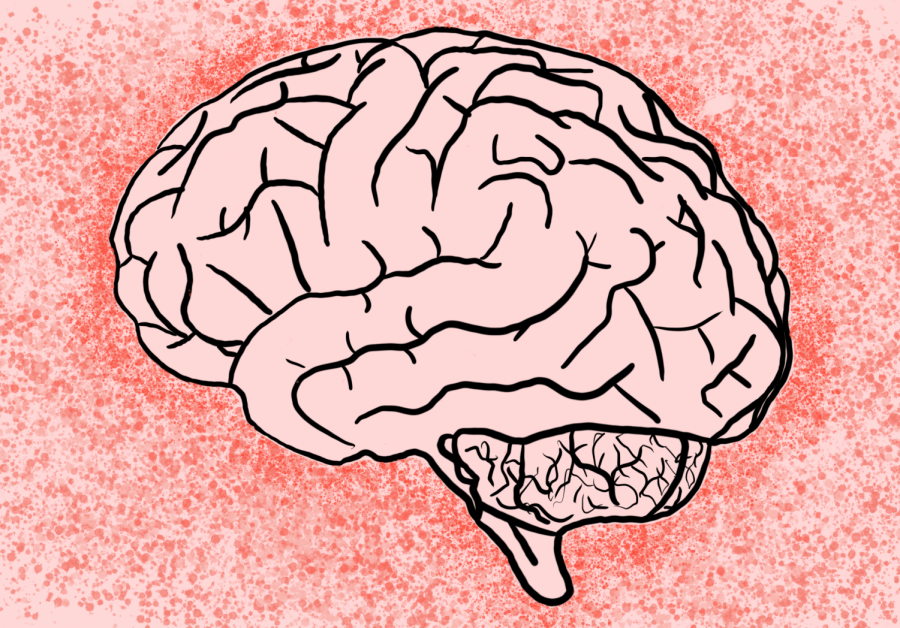Mental Health Issues On The Rise Due To COVID-19
Though depression and eating disorders can’t just be “cured” there are treatments to help you deal with them.
November 20, 2020
Imagine spending everyday battling your own mind. Well, this is what’s happening to teens all across the world, especially in recent months due to COVID-19.
Human beings are social creatures and “being cut off from the love, support, and close contact of family and friends can trigger depression or make existing symptoms worse,” according to HelpGuide. “Months of social distancing and sheltering at home can leave you feeling isolated and lonely, having to face your problems alone.”
As reported by PsyCom, “approximately 30 million people in the United States have some type of eating disorder. Some overeat and become obese, some don’t eat enough and literally starve themselves, while others overeat and then purge themselves by vomiting up food or using other methods to rid their bodies of excess calories.”
In addition, almost half of those who suffer from a type of eating disorder also have depression. Many symptoms of depression are the same as eating disorders such as changes in weight, insomnia, fatigue, feelings of sadness, or other changes in mood. Though both illnesses can include these, fatigue and severe weight loss most often overlap between the two.
“Depression may lead to eating disorders, but there’s also evidence that eating disorders can result in depression.” (WebMD)
Many people find things to dislike about their bodies, they work out and go on diets. But those with eating disorders try to change their bodies in a harmful way. Some will starve themselves, others will work out for hours trying to burn each and every calorie they consumed. (ADAA) Even though most people who have eating disorders are underweight, yet they see themselves as overweight.
“I’ve been struggling with an eating disorder for the past two years,” says an anonymous student at Liberty. “It’s not something that can be given medicine and then is fixed, it’s always going to be there. My whole life I’ve always been called slim, yet in my eyes, I don’t see it. It took me a year of talking to different professionals to be who I am now. I still struggle every day to not fall into the same patterns I’ve fallen into in the past.”
There are four main types of eating disorders that are recognized by the Diagnostic and Statistical Manual of Mental Disorders, anorexia nervosa (limit food consumed, fear of weight gain, underweight), bulimia nervosa (overeat and then control their food intake to lose the weight they gained from their binge, severe body image issues), binge-eating disorder (binge eat at least once a week for three months, can’t control food intake), and avoidant restrictive food intake disorder (avoid certain food because of its traits; color/texture).
“The physical impact of an eating disorder can be significant. Over time, disordered eating behaviors can damage your digestive tract, skin, bones, and teeth, as well as the functioning of various other organs, such as your heart. Eating disorders have the highest death rate among mental health conditions, especially anorexia. In fact, the risk of early death for those with anorexia is 18 times higher than that of their peers,” says PsyCom.
There are nine types of depression, major depression (experience symptoms constantly), persistent depression (lasts two years or more, not as intense as major depression), manic or bipolar depression (alternating episodes of happiness and depression), depressive psychosis (lose touch of reality, hallucinations/delusions), perinatal depression (occurs with peripartum onset, during pregnancy or soon after childbirth), premenstrual dysphoric disorder (a severe form of premenstrual syndrome, both physical and psychological), seasonal depression (related to certain seasons), situational depression (brought on by specific events or situations), and atypical depression (temporarily goes away during positive events). (HealthLine)
Though depression and eating disorders can’t just be “cured” there are treatments to help you deal with them. Some of these treatments include cognitive behavioral therapy, family therapy, group therapy, medication management, nutritional management and nutritional counseling, and in some cases, hospitalization.
Helplines:
https://www.nationaleatingdisorders.org/help-support/contact-helpline
https://suicidepreventionlifeline.org/
https://www.mentalhelp.net/depression/hotline/














